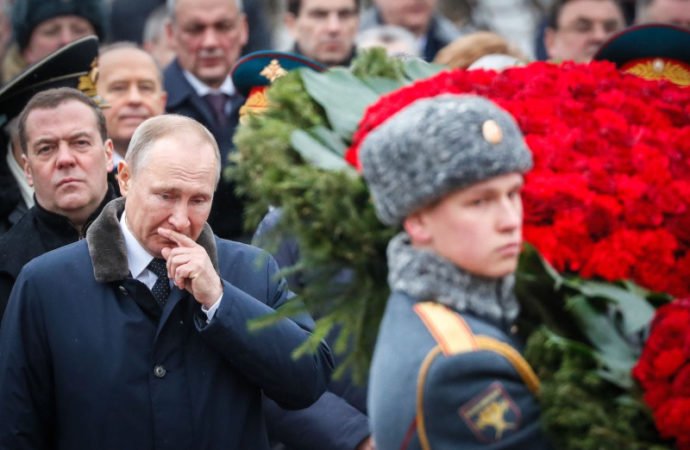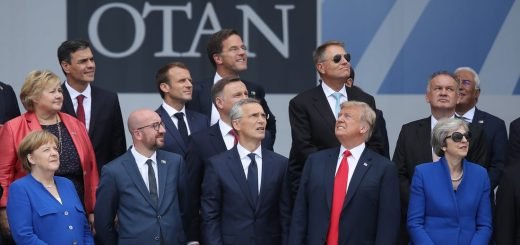Russia’s Soft Power Ambitions Under Vladimir Putin

Why Soft Power?
Harvard Professor Joseph Nye introduced the word ‘Soft Power’ in the 1980s. Exercising Soft Power is all about influencing the behaviour of other political bodies which is propitious to one’s national interests through non-military and non- economic means.
According to Realist theories, whether one supports war or not is the next debate, but War is the most important phenomenon of International Politics. Kenneth Waltz in his book, Man, State and War (1959) has argued that the inevitability of the War can be attributed to three levels- Individual level, State level and International System Level. The reasons for States to get into wars according to John Mearsheimer in the article ‘Tragedy of Great Power Politics’ are as follows: –
- There is no world government.
- States are ‘rational’ actors. There are trust issues and the idea of Survival among the States.
- All States can use force against other states.
- No state can ever be certain that another State will not use force against it.
- The aim of the States always is Territorial Integrity and Domestic autonomy.
But then Kenneth Waltz has a different viewpoint than Mearsheimer. According to Waltz, No Realist of any type would want to quarrel. They just emphasis on maintaining their status- quo. Even the classical realists like Sun-Tzu and Kautilya have said that Indeed, War is a vital matter of the State. But if you can avoid War and still get the benefit, then avoid the war. A prudent state avoids war because War is costly. We always must be aware of the evils of waging a war.
In other words, the direct use of force to attain economic gains proves costly and that is when Soft Power comes into the picture. Russia is one such country who wishes to revive its soft power ambitions and it has started materializing with Putin coming to power which once it enjoyed it under USSR. John Sipher who was the former head of agency’s Russia operations made a statement about Putin’s policy and that was – ‘Where there are Russians, that is where Russia is.’ Before 1991, the Soviet Union had a history of having more than 100 friendship societies around the world.
Russia’s idea of soft power has been different than the United States. The latter’s idea is more based on Freedom and Democracy while Russia’s idea of soft power has always been based on the Unification of the Russians. It had also made an impression in the early post-war period through ideas like Communism and taking a stand against Nazi Germany.
According to Dr Fiona Hill who is working in the Brookings institution, “Russia has the potential to achieve the economic and cultural pre-dominance in Eurasia that the United States has in the Americas.”

However, Russians soft power manifested in its foreign relations is not based on presenting an attractive image of itself like America but is rather more focused on ‘Engagement’ and ‘Information’. Russia has its own information broadcasting channel, RT, from where it exports information to the West and provides them with an alternative view which their local media channels never show them. It has been successful in not only connecting with their audience but also providing a contrasting view. However, It has also been alleged that this is nothing but a Kremlin Propaganda and it has been influencing the Western Citizens by countering the narratives of the Western Media around public policy. John Kerry, the Secretary of State of the US has openly criticized the channel. The media outlets in America and Britain have blamed Putin’s PR team for misleading their people. A Lithuanian scholar Nerijus Maliukevicius, also stated that this informational geopolitics did not contribute much to the soft power resources of Russia.
Also, Russia viewed the Eastern Partnership Policy (EaP) of 2009 launched by EU as a threat intended to deteriorate Russia’s diplomatic influence in the region and usually reacts with a cut in oil supplies and trade embargoes. This is effective to some extent but still not a long- term solution. Russia faced isolationism after the 2014 EU- US-led sanctions. It reacted by creating a soft power platform like The Eurasian (economic) Union in the year 2015 to attract the members of the EaP countries through conservative values, geographical proximity and a common Soviet past. This was a testimony to the fantasies of Russia to build a strong soft power platform to consolidate a unified Eurasian economic and cultural space. And the benefit derived out of this was solidarity from countries like Moldova and Azerbaijan and incorporation of new members like Belarus and Armenia. Eurasian Union was formed to counter the European Union and to project Russia as a hegemon in the region.

Soft Power instruments by Russia
A federal agency on Soft Power, Rossotrudnichestvo in association with the Ministry of Foreign Affairs of the Russian Federation has been formed in the year 2006 with a primary focus on cooperating with the members of the Commonwealth of Independent States, International Humanitarian Cooperation and Compatriots staying abroad. It also intended to present a ‘Modern Russia’ to the world with an aim to preserve and promote the culture and the language of Russia while reinforcing friendships and cooperation with different nations. It is the centre of Russia’s Soft power strategy. Russian Center of Science and Culture has its presence in 77 countries across the globe.
The Russkiy Mir Foundation formed in the year 2007provides financial grants for supporting Russian projects based on competition for the promotion of Russian language throughout the world provided certain regulations are met. Just having a rich culture and great Russian literature is not enough. Because language is an important tool for asserting Russian identity.
Voice of Russia which was founded in the year 1929 and then called Moscow International Radio played an important role in the communication between President Khrushchev and President Kennedy in the historic Cuban missile crisis of 1962. At present, it has eight different platforms like Radio, Social media, a website and broadcasts in cities like Washington DC, Berlin and London with more than 120 million listeners across the globe. It doesn’t operate under the Government of Russia but still, it presents views on behalf of the government and financed by the same.

Russia Beyond the Headlines
With its headquarters in Moscow, RBTH is a monthly supplement published in the leading newspapers across the globe. A part of it derives its financial backup from the revenue receipts of a daily newspaper of the Russian government by the name of Rossiskaya Gazeta. Another part of it derives it from various local administrations who wish to attract investment opportunities. This idea too developed post-Putin era in the year 2006. The motive behind this idea was the under-representation of Russia in the global media and also to counter the shrinking space in the global arena and the negative controversial news with respect to Russia. Today RBTH finds a space in almost all major newspapers across the globe like The Washington Post, Daily Telegraph, Le Figaro, Ze Deutsche Zeitung, La Republicca and the Wall Street Journal.
RBTH claims to provide quality journalism and has turned as a platform for the expression of Russia’s interest.
Putin’s approach towards his foreign policy sees a departure from the Soviet’s ideology. Russia’s limiting power post the Cold war era has made him strengthen his efforts to emulate the American power realists. He specifically wanted to use soft power strategies to attract international investments which have been badly affected because of Russia’s negative image and distrust for the same.
Loopholes in the Soft Power Ambitions
- The Russian public diplomacy lacks operational coordination and there is no two- way communication between the Foreign Ministry and the other entities involved in executing public diplomacy.
- As per Fiona Hill, the legitimacy and stability of the Russian Public Policy are kind of centralized and only revolves around Vladimir Putin. It lacks professionalism and is informal and private.
- A soft power structure without the inclusion of the members of a civil society defeats the agenda. Only administrative departments of the state cannot manage to do it. An inclusive approach is much needed.
Challenges faced by Russia in Present times
- The rise in the economic influence of China has diminished the Russian sphere of influence.
- Strained relations with the West in terms of Geopolitical interests, Economy and Ideology.
- The recent emergency declared by Putin on the oil spill into the Arctic Circle.
Way Forward
The post COVID world will create a new International order and also new opportunities for Russia to build its empire again. The global supply is more likely to see strategic shifts and Russia can prove itself as a viable alternative to China. Military and economic rivalry among the US, China and Russia can bring major geopolitics shifts. The global pandemic can be used as a strategy to subvert the west and to shift the world order in favour of Russia. Now it would be interesting to see whether Russia aligns with countries like China, Iran and turn this to be an ‘opportunity of the century’ or sees its further deterioration amidst the rise of China.
References
Burlinova, Natalia (2015), Russian Soft Power is just like Western Soft Power but with a twist, Russian Direct Opinion.
Koshkin, Pavel (2015), The Paradox of Kremlin Propaganda: How it tries to win hearts and minds, Russian Direct Opinion.
Lambert, Michael (2018), Soft power vs Hard power: the diplomatic struggle of the Western world in the East, New Eastern Europe.
The Soft Power 30- Russia Federation in 2019, Portland, USC Center on Public Diplomacy.
Dougherty, Jill (2013) Russia’s Soft Power Strategy, Georgetown University, Washington DC.
Taylor, Chloe (2020) Putin seeking to create new world order with ‘rogue states’ amid coronavirus crisis, CNBC.


















